The signs of depression can often be difficult to identify. Once an individual identifies the symptoms and side effects of depression, the next step in the recovery journey become clear.
Understanding Depression
Learn about depression
More than just feelings of melancholy, depression is a mental health condition that has the ability to affect several areas of a person’s life if proper care is delayed or not sought. Common symptoms of this mental illness can include changes in one’s sleep habits, alterations in one’s eating patterns, overwhelming feelings of sadness, thoughts of death, and a significant decrease in motivation for even the most menial of tasks.
In many instances, when one continues to suffer from untreated depression symptoms, several adverse effects often transpire. Ranging from self-harm to the abuse of life-threatening substances, those with depression tend to become vulnerable to a whole host of unfavorable outcomes the longer this illness persists without intervention.
Fortunately, there are several options for care that exist that can alleviate depression symptoms and help to mitigate the effects that would otherwise occur. With timely, proper, and effective treatment, an individual once struggling to manage depression symptoms can develop the coping skills, confidence, and drive to move forward in life as a happier, healthier person.
Statistics
Depression statistics
Depression is one of the most commonly diagnosed mental disorders in existence today. Experts estimate that as many as sixteen million Americans, or 7% of the population, grapple with this illness each year. Furthermore, it has been realized that more women are diagnosed with depression, as females experience depression symptoms at a rate one and a half times more often than males. Lastly, it has been realized that depression impacts the lives of more 18 to 25 year-olds than any other age range, though mental health professionals agree that depression symptoms often become more severe as individuals age.
Causes and Risk Factors
Causes and risk factors for depression
Researchers have made great headway in trying to understand why some people develop depression while others do not. Consider the following explanations and risk factors that may give clarity as to why you or your loved one is experiencing symptoms of depression:
Genetic: A substantial amount of research supports the notion that depression is a heritable condition. If an individual has a first-degree family member, such as a parent or sibling, who has also experienced depression, there is a far greater likelihood that a person will also come to experience similar challenges.
Environmental: Certain environmental influences have the ability to trigger the onset of depression and this fact is even truer for those who have a familial history of depression. Examples of environmental influences that can cause a person to experience the symptoms of depression include experiencing the loss of an important loved one, joss loss, experiencing a trauma, being the victim of a crime or violence, residing in a high-stress area, and lacking proper support and coping skills for handling stress.
Risk Factors:
- Lacking effective coping skills
- Having a history of abuse, neglect, or parental absence
- Having a family history of mental illness or substance abuse
- Experiencing trauma
- Being unemployed
- Being homeless
- Experiencing a life-altering injury
- Having a personal history of other mental illness or substance use
Signs and Symptoms
Signs and symptoms of depression
There are several factors that can influence the apparentness of depression. First, the severity of the symptoms can mask or make it more obvious that an individual is suffering from this condition. Secondly, the length of time that depression symptoms have been present can also clue others in to whether or not this illness is occurring. Lastly, whether or not an individual shares how he or she is feeling while experiencing a depressive episode can impact whether or not loved ones are aware that someone they care about is, in fact, depressed. To know for sure if depression is a factor in your or your loved one’s life, it could be helpful to note the presence of the following symptoms and then seek an assessment for treatment:
Behavioral symptoms:
- Self-harm
- Tearfulness
- Slowed or agitated movements
- Lack of participation in once-enjoyable activities
Physical symptoms:
- Sleep disturbances
- Changes in weight
- Appetite changes
- Low sex drive
- Unexplained pain
- Headaches
Cognitive symptoms:
- Thoughts of death
- Difficulty concentrating
- Thoughts of suicide
- Slowed thought processes
- Difficulty making decisions
- Poor memory
Psychosocial symptoms:
- Loss of pleasure in daily life
- Withdrawal from relationships
- Sad mood nearly every day
- Feelings of worthlessness
- Excessive feelings of guilt
- Feelings of hopelessness
Effects
Effects of depression
The longer an individual suffers with untreated and unmanaged symptoms of depression, the more likely a person is to then experience adverse effects as a result. Among the many detrimental effects that can occur when one is battling depression, the following are those that have a high probability of occurring if treatment is delayed or not received:
- Development of additional mental health concerns
- Onset of self-harming behaviors
- Chronic unemployment
- Homelessness
- Poor work performance
- Academic difficulties
- Poor academic achievement
- Missed school days
- Substance abuse, which can lead to addiction or chemical dependency
- Strained or broken relationships
- Job loss
- Social isolation
- Physical health concerns
- Suicidal thoughts or attempts
Co-Occurring Disorders
Depression and co-occurring disorders
Depression is widely known to exist alongside other mental health conditions. In fact, certain disorders can exacerbate the symptoms of depression and vice versa. In order to know if a person is suffering from depression and one of the following co-occurring disorders, an assessment with a qualified mental health professional must be completed:
- Obsessive-compulsive disorder (OCD)
- Anorexia nervosa
- Posttraumatic stress disorder (PTSD)
- Substance use disorders
- Anxiety disorders
- Borderline personality disorder
- Bulimia nervosa


